Kidney stones: Can rollercoaster rides really dislodge them? Will drinking more water flush them out?
Are other "self-help methods" such as drinking cranberry juice, eating citrus fruits and avoiding dairy products facts or myths? If you have experience trying to pass out a kidney stone, you might be tempted to give them a shot. But should you?

Can rollercoaster rides or drinking lots of water help you to pass out kidney stones? (Photos: iStock/Suriyawut Suriya and Philartphace)
Rollercoaster rides certainly deliver an unmistakable adrenaline rush. You get hurled down slopes at scream-inducing speeds, spun upside down, whipped sideways – and essentially get your insides shaken up.
That last point about your insides might just contain a nugget of truth if you suffer from kidney stones. As unbelievable as it sounds, a study published in the Journal of the American Osteopathic Association noted that some patients with kidney stones anecdotally reported that riding rollercoasters helped them to dislodge and pass out their stones.
For those who are blissfully unaware of the affliction, the stones don’t cause any pain until they move around in the kidneys or get passed out through the ureters. That’s when you may be doubled over with pain that’s akin to childbirth each time you urinate – or the pain may come and go as it pleases.
Leaving the stones in isn’t a good idea for the above reason; these mineral deposits can also choke up your ureters, increase your risk of infection and put a strain on your kidneys.
So, for the sake of science, researchers from Michigan State University’s College of Osteopathic Medicine rode Walt Disney World’s Big Thunder Mountain Railroad in Orlando 60 times – all while carrying a 3D clear-silicone kidney model containing urine and kidney stones of three different sizes in a backpack. What they found was that “a ride on a moderate-intensity roller coaster could benefit some patients with small kidney stones”, said professor of urology David Wartinger, who initiated the study.
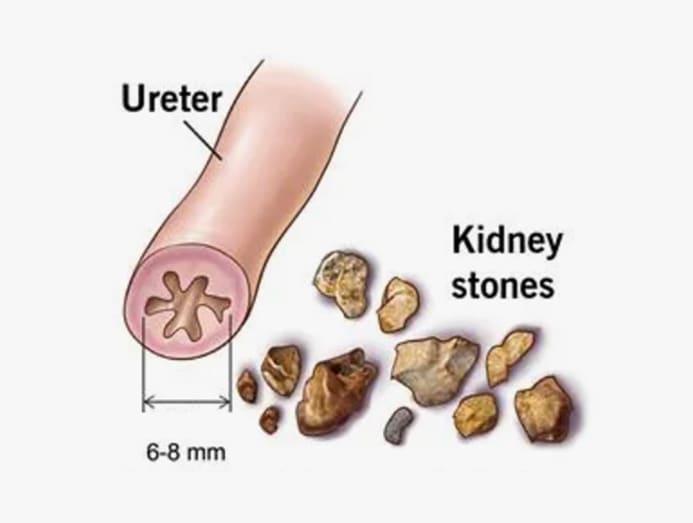
The researchers also replicated the experiment on other rides and concluded that Big Thunder Mountain Railroad’s maximum speed of 35mph, two-and-a-half-minute duration, sharp turns and quick drops but no upside-down movement made the best combination for shaking out the stones.
We’re just not sure if Universal Studios Singapore’s more exhilarating Battlestar Galactica rides (which are faster and give you twisting, turning, dropping and flipping action) can also elicit the same results but Dr Chua Wei Jin, a senior consultant and head of urology at Alexandra Hospital, believes that “it is possible. It’s just that I don’t see any cases so far in my practice”.
Urologist Shirley Bang from Mount Elizabeth Novena Hospital and Parkway East Hospital also agreed that these adrenaline-inducing rides could do the trick “but there are not enough scientific studies to prove it”.
Neither has she seen patients who experienced reduced pain related to kidney stones after riding a rollercoaster. “On the contrary, I have patients who have reported migrated stones or stone pain after visiting a theme park! So, it is not advisable.”
I have patients who have reported migrated kidney stones or stone pain after visiting a theme park.
That’s one medical myth out of the way. But we would be remiss to leave other (kidney) stones unturned. What about other seemingly plausible methods of preventing stone enlargement if you already have them? We find out from the experts.
CAN CRANBERRY JUICE HELP WITH KIDNEY STONES SINCE IT CAN HELP WITH URINARY TRACT INFECTIONS?
It depends on the minerals that make up your kidney stone – which can consist of calcium (most common and can be sub-categorised into calcium oxalate and calcium phosphate), uric acid, struvite and/or cystine – and how the minerals react to the pH level of your urine. “Some stones are a mix of two or more stone types,” said Dr Martin Lee, a senior consultant with National University Hospital's (NUH) Division of Nephrology.
With cranberry juice, it can go both ways, he said. The juice’s acidity may increase oxalate stones but also reduce or prevent struvite stones. And you wouldn’t know for sure how your stone would react to cranberry juice, unless you have undergone “a 24-hour urine collection to measure the person’s stone forming substances and factors”, said Dr Matthew D’Costa, an associate consultant with NUH’s Division of Nephrology.
"Stone preventive diets, treatments or supplements have effects on the body that may be harmful in some people," said Dr Lee. "They should not be taken blindly without the advice of a doctor trained in stone prevention, usually a urologist (kidney surgeon) or nephrologist (kidney physician)."
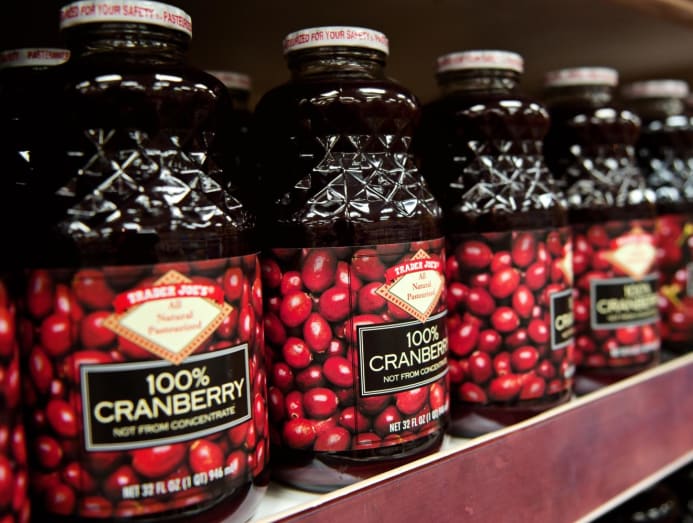
WOULD CONSUMING ACIDIC FOOD OR DRINKS HELP TO DISSOLVE THE STONES?
Sorry but that’s not how it works. “In general, most kidney stones will not ‘dissolve’ once formed,” said Dr D’Costa. Again, it’s back to the stone’s mineral make-up.
“Certain stones form in more acidic environments and the acid in soft drinks may be a contributing factor”, said senior dietitian Rachel Tay from Gleneagles Hospital. An example is dark-coloured soft drinks, said Dr Lee, that contain “phosphoric acids, which may increase the growth of calcium phosphate stones”.
However, the more-acid-equals-more-kidney-stones rule doesn’t apply to every situation. Take citrus fruits such as oranges and lemons, for example. The fruits’ citrate binds with calcium to prevent urine from becoming saturated with the mineral – and could inhibit stone formation, said Tay.
But the Vitamin C in citrus fruits also contain oxalate, which can cause oxalate stones to grow, said Dr Lee. Furthermore, downing more orange juice can also “alkalinise urine excessively, which can make calcium phosphate stones grow faster”, he said.
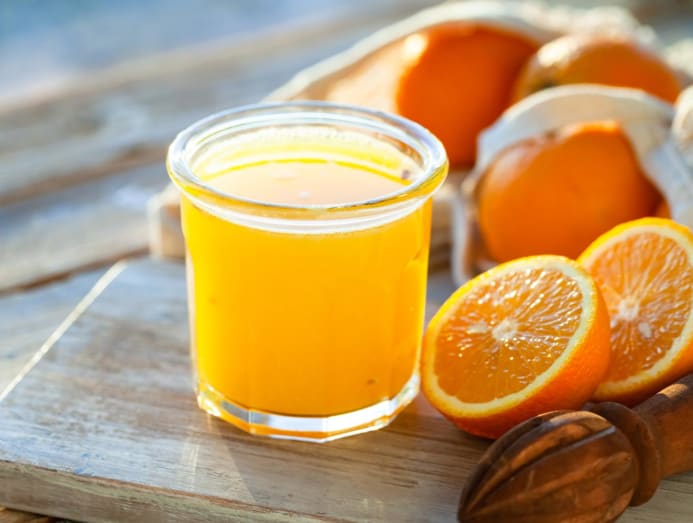
Your best bet? Don’t try to acidify or alkalinise your urine by drinking acidic or alkaline fluids – including alkaline water – without first having your urine stone chemistry analysed by a doctor to determine the optimal urine pH, said Dr Lee.
SHOULD WE AVOID CALCIUM-RICH FOOD SUCH AS CHEESE AND MILK?
“On the contrary, a normal intake of dietary calcium (about 800mg to 1,000mg daily) from food sources like milk and yoghurt that are taken with meals may help to prevent kidney stone formation,” said Tay. “However, caution is advised when taking calcium supplements.”
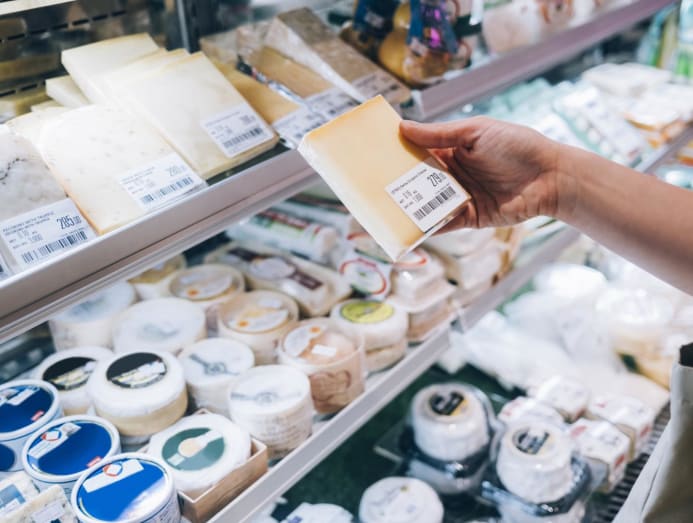
But even without a high-calcium diet – or a very high intake of sodium or Vitamin D, for that matter – some individuals’ kidneys simply excrete too much calcium into their urine, “even though they may be eating a normal or even a low-calcium diet”, said Dr Lee. Unfortunately, these patients can’t reduce their calcium intake as that will increase their risks of osteoporosis and fractures at a young age, he said.
“One of the treatable causes of high-calcium levels is primary hyperparathyroidism, which is an overactive parathyroid gland leading to the loss of calcium in the bones and increase in calcium in the blood stream," said Dr D’Costa, which can then lead to kidney stones.
“What a ‘normal’ calcium intake is for each person is best advised by a dietitian, who will start by determining how much calcium the person is already taking," he said.
CAN STAYING IN AIR-CONDITIONING HELP SINCE LESS FLUID LOSS MEANS LESS CONCENTRATED URINE?
“The sweating per se doesn’t increase kidney stone formation,” said Dr Bang, who added that it’s the combination of sweating – and not drinking enough water – that could lead to “dehydration and possibly the formation of kidney stones”.
That situation is what lands many drivers by profession in the kidney stone hot soup, said Dr Lee. “Their urine becomes very concentrated and the substances that form stones will be present in much high levels than in dilute urine in a person who drinks enough fluids.”
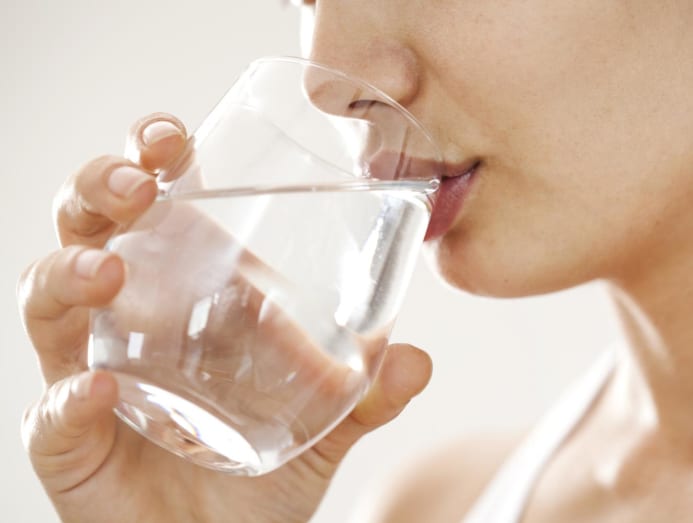
WOULD DRINKING MORE WATER HELP TO PREVENT KIDNEY STONES?
Drinking two to three litres of water a day with medication is a common treatment to help your body to naturally flush out small kidney stones, according to HealthHub.
But can simply drinking water help to prevent the stones in the first place? It might but be prepared to drink “at least 2 litres to 2.5 litres of water per 24 hours”, said Dr Lee. And even so, there can be repercussions, especially if you have a weak heart or kidneys, on a low-salt diet, or are taking medicines to increase urine output, he said. "It is critically important to consult your doctor or a stone prevention specialist before starting high fluid intakes or stone preventive treatments."
There are also other contributing factors that increase your risk for stone formation, said Dr D’Costa, including a person's diet, lifestyle and underlying diseases. “In general, stones grow over months to years, but if a person is often dehydrated and has a stone-forming tendency in their kidneys and urine, stones can grow and new stones can form within a year.”






